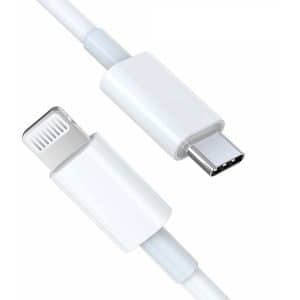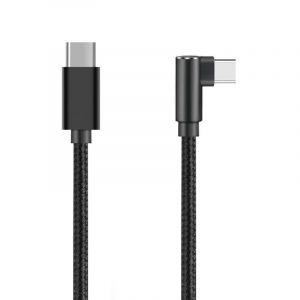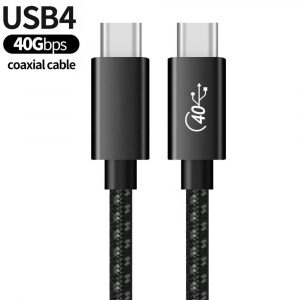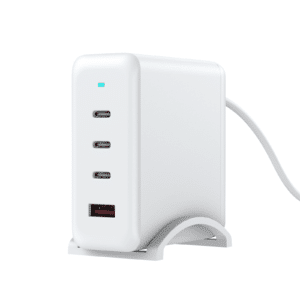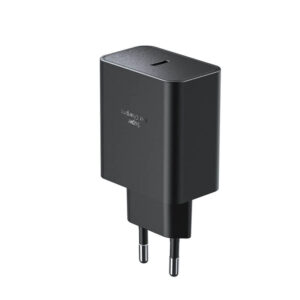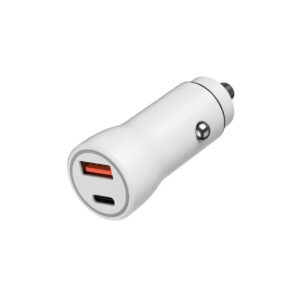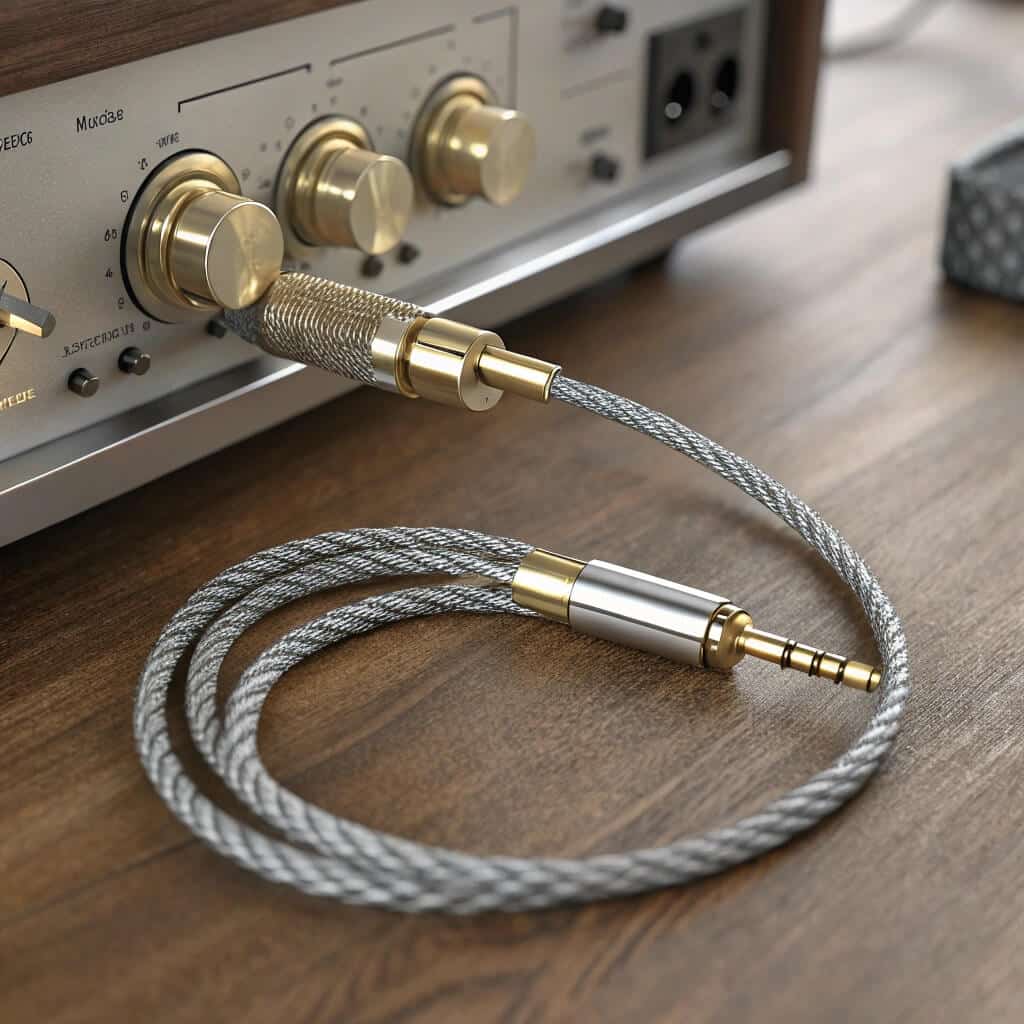
Have you ever wondered how your car stereo or home speakers connect to your phone so easily? AUX ports and cables might be the answer you’ve been searching for.
An AUX port is a standard analog input/output interface that allows audio devices to connect and transmit sound signals. An audio AUX cable, typically with a 3.5mm jack, enables this connection, making it possible to play music from smartphones, MP3 players, and other devices through external audio systems.
Understanding how AUX ports work can improve your audio experience. Let’s dive deeper into the benefits and functions of AUX ports and cables.
How do AUX ports enhance audio connectivity?
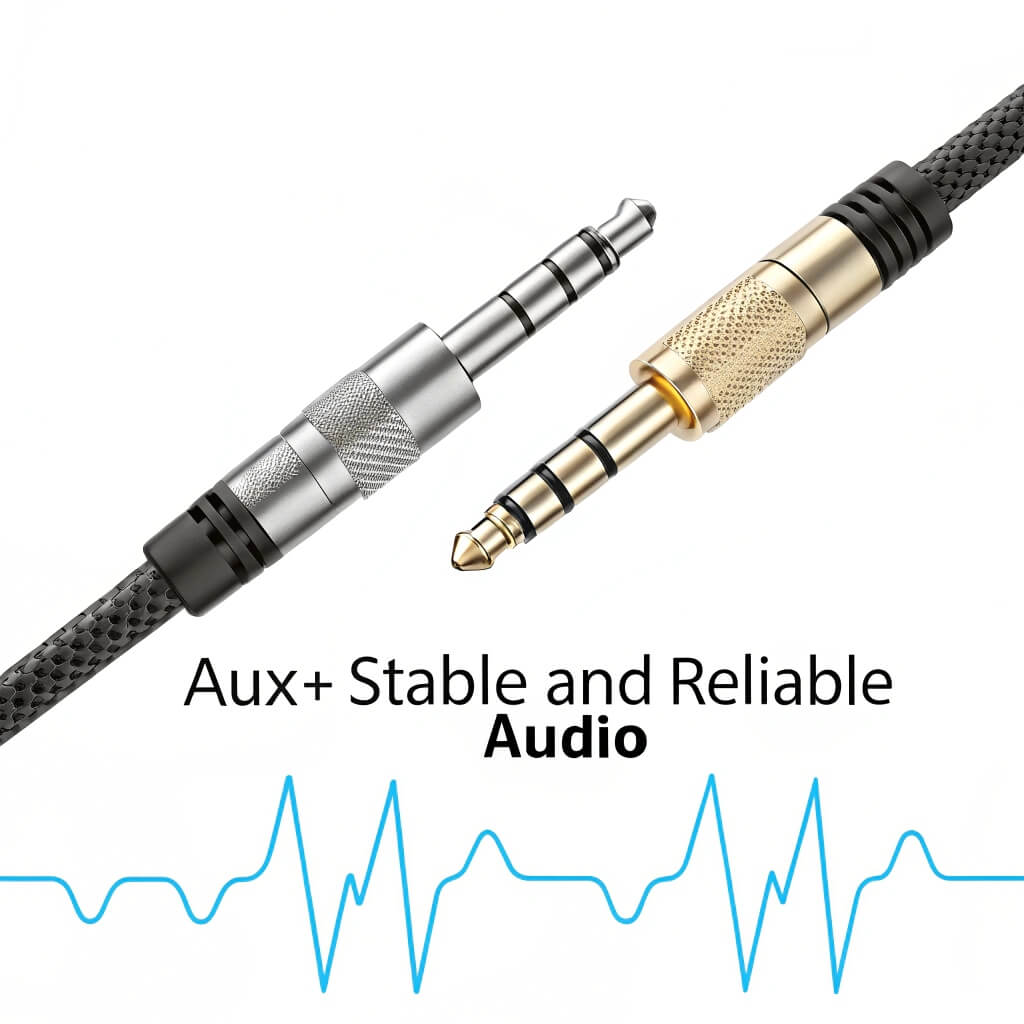
Are you tired of poor sound quality when connecting your phone to speakers? AUX ports could be the key to improving your audio experience.
AUX ports provide a direct and stable analog connection, ensuring high-quality sound transmission with minimal interference. Unlike wireless connections, AUX ports offer consistent audio output without dropouts or lag.
AUX ports play an important role in maintaining stable audio connections. Unlike Bluetooth or Wi-Fi, which rely on wireless signals that can be affected by interference, AUX ports provide a physical connection. This ensures a steady audio signal without interruptions.
Why analog signals matter
AUX ports use analog signals, which transmit audio directly from the source device to the playback device. Analog signals are known for their ability to preserve sound quality because they don’t need to be compressed like digital signals. This helps maintain the original sound fidelity.
Why direct connections are more reliable
Wireless connections are convenient but can suffer from latency and dropouts. AUX ports avoid this problem because they establish a direct, wired connection between devices. This reduces the chance of signal loss and improves audio consistency.
Table: AUX ports vs. wireless connections
| Feature | AUX Ports | Wireless Connections |
|---|---|---|
| Signal Type | Analog | Digital |
| Latency | Low | Higher |
| Interference | Minimal | Possible from other signals |
| Compatibility | Universal | Varies by device |
| Sound Quality | High | Can vary based on signal strength |
Using AUX ports ensures you get reliable, high-quality audio without the interruptions or inconsistencies that come with wireless connections.
What devices commonly use AUX ports?
Ever noticed how easy it is to plug your phone into your car’s sound system? That’s the power of AUX ports at work.
AUX ports are widely used in car stereos, home audio systems, headphones, and portable speakers. This versatility makes them a go-to solution for audio connectivity.
AUX ports are found on many everyday devices. Understanding where they are used can help you maximize their benefits.
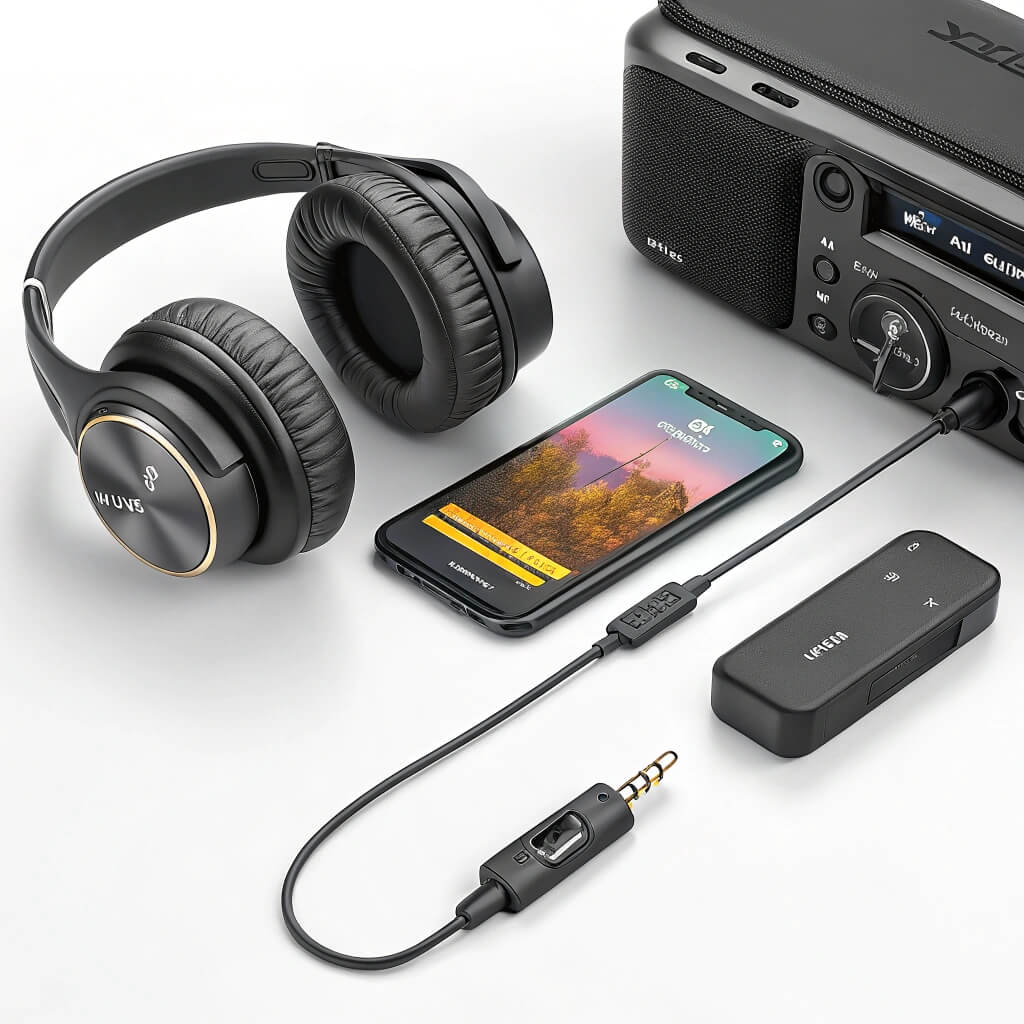
Common devices with AUX ports
- Car Stereos – Most cars include AUX ports on the dashboard or center console. This allows you to connect your phone or MP3 player directly to the car’s audio system.
- Home Audio Systems – Soundbars, receivers, and even older stereo systems often have AUX inputs for playing music from external devices.
- Headphones and Earbuds – Many wired headphones and earbuds use a 3.5mm jack that connects to an AUX port.
- Portable Speakers – Bluetooth speakers often have an AUX input as a backup for a more stable connection.
Table: Types of devices with AUX ports
| Device Type | Purpose | Port Location |
| Car Stereo | Music Playback | Dashboard or Console |
| Home Audio System | Sound Enhancement | Front/Back Panel |
| Headphones | Personal Listening | Cable Jack |
| Portable Speaker | Outdoor Listening | Side or Bottom |
Why compatibility matters
AUX ports are valued for their broad compatibility. A 3.5mm jack works with most audio devices, whether you’re using a smartphone, tablet, or gaming console. This makes AUX ports one of the most accessible and versatile audio connections available.
How does an AUX cable differ from other audio cables?
Confused about which cable to use for your sound system? Understanding the differences between AUX and other cables can help.
An AUX cable transmits analog audio signals, while HDMI and optical cables carry digital signals. AUX cables are also more widely compatible with everyday devices.
AUX cables are different from other audio cables because they transmit analog signals. Let’s take a closer look at how they compare to other common cables.

Key differences between AUX and other cables
- Signal Type – AUX cables transmit analog signals. HDMI and optical cables carry digital signals.
- Compatibility – AUX cables work with most audio devices, while HDMI and optical connections require specific ports.
- Ease of Use – AUX cables are plug-and-play, while digital cables may need additional setup.
Table: AUX cables vs. other audio cables
| Cable Type | Signal Type | Compatibility | Use Case |
| AUX | Analog | Universal | Music, calls, general audio |
| HDMI | Digital | Limited to HDMI ports | Audio and video |
| Optical | Digital | Limited to optical ports | High-fidelity audio |
Why analog signals offer unique advantages
Analog signals preserve the original audio quality without the need for compression. This makes AUX cables ideal for music and other sound-based media where sound quality matters. Digital signals are better for transmitting complex audio formats, but they can lose detail during compression.
What are the advantages of using AUX connections?
Why do people still rely on AUX cables when wireless options are available? Let’s explore the benefits.
AUX connections offer consistent audio quality, low latency, and universal compatibility. They don’t rely on internet or Bluetooth signals, ensuring stable playback.
AUX connections remain popular because they offer several unique advantages over wireless and digital options.
Why AUX connections are still relevant
- Consistency – Since AUX connections use a direct cable, they aren’t affected by wireless interference or signal drops.
- Low Latency – AUX connections transmit audio with minimal delay, making them ideal for gaming and video playback.
- Universal Compatibility – A 3.5mm AUX port is a standard feature in most audio devices, ensuring wide usability.
- Simplicity – There’s no need for software setup or pairing. Just plug and play.
Table: Why AUX connections still matter
| Benefit | Explanation |
| Consistency | No signal drops or interference |
| Low Latency | Ideal for real-time audio |
| Universal Compatibility | Works with most devices |
| Simplicity | No setup or configuration needed |
Why wired connections remain valuable
Even as wireless technology advances, AUX connections continue to provide reliable and high-quality audio. The simplicity and compatibility of AUX cables make them an essential tool for anyone who values consistent sound quality.
Conclusion
AUX ports and cables remain a trusted solution for audio connectivity due to their reliability, simplicity, and universal compatibility. Understanding how they work can help you make the most of your audio devices.
Related Products
Wandkey Electronic Co., Ltd – Your Trusted Partner for Premium Phone Accessories
Wandkey Electronic Co., Ltd is a leading manufacturer specializing in high-quality phone accessories, offering a full range of USB-C Cables (2.0/3.0/3.1/3.2 Gen 2/USB4), Lightning Cable, iPhone Charger cable, PD Fast Charer, GaN Wall Chargers, Car Chargers, and more. With UL, CE, RoHS, Reach, PSE, KC, FCC, UKCA certificate, ensuring top-tier quality and safety.
What We Offer
We provide OEM & ODM services to help brands and businesses customize their products, including:
✅ Custom Branding & Logo Printing – Enhance your brand presence with personalized designs.
✅ Tailored Product Specifications – Customize cable lengths, charging power, materials, and more to fit your needs.
✅ Certified and High-Quality Manufacturing – Strict quality control and compliance with international safety standards.
✅ Packaging Customization – We offer bulk packaging, retail packaging, and eco-friendly solutions.
✅ Technical Support & After-Sales Service – Professional guidance from product development to after-sales assistance.
Who We Serve
Our business model is B2B wholesale, catering to brands and manufacturers who require premium charging accessories. Our main customers include:
✔ Phone accessory brands looking for high-end charging solutions.
✔ Electronics and smart device manufacturers needing reliable charging components.
✔ Medical equipment companies, monitoring system providers, and other industries requiring certified power solutions.
Looking for a reliable supplier for premium USB cables and chargers? Contact us today to discuss your project needs and get a customized solution tailored to your brand.
Top Topics
2025 Latest MFi Authorized Manufacturers list
Differences of Lightning Connector
How to check MFI Certification
How to get MFI Certification for Your Brand?
Why does the MFI Certified Lightning Cable so expensive?
MFI Product Packaging Requirement?
Disassemble MFI Lightning Cable
How do we guarantee the quality?
How to identify counterfeit or uncertified Lightning connector accessories
How to Choose Fast Charging Cable for Your Phone
How do I choose a USB-C cable?
Differences between USB 3.0 3.1 and 3.2
Test on USB C to USB C 3.1 Cable


